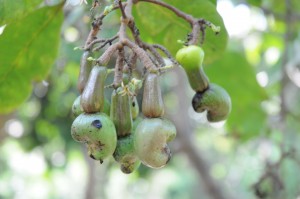Spotlight #30 – Forests: Food for thought – and nourishment
Forests: Food for thought – and nourishment
A report that analyses the complicated, intertwined and often oppositional philosophies, land uses and governance regimes that comprise the forest-food nexus, will help inform deliberations as the United Nations Forum on Forests develops a 15-year roadmap for international forest policy.
At the heart of the new report is the understanding that forests and trees cannot, by themselves, replace the role of agriculture, but they are critically important to food security and nutrition.
New expert panel assesses linkages between forests and food security
Forests play a major role in achieving Millennium Development Goal 1 to eradicate extreme poverty and hunger and in striving for food security. Globally, millions of people depend on forests for their food security and nutrition, directly through the consumption or sale of foods produced in forests, indirectly through forest-related employment and income, forest ecosystem services, and forest biodiversity.
Current approaches to increasing food security tend to concentrate on agricultural solutions, ranging from intensification of agricultural production outside of forests to promoting agroforestry systems. Policy recommendations to establish a framework for promoting food security from forests, however, have so far been rather general and no framework addresses the relationship between forests and food security directly.
The “International Conference on Forests for Food Security and Nutrition”, held at FAO Headquarters in Rome in May 2013, inter alia conveyed the key message that forests, trees and agroforestry systems demand greater attention in strategies for food security and nutrition and in the fight against hunger. It also called for improved data collection at national and international levels.


